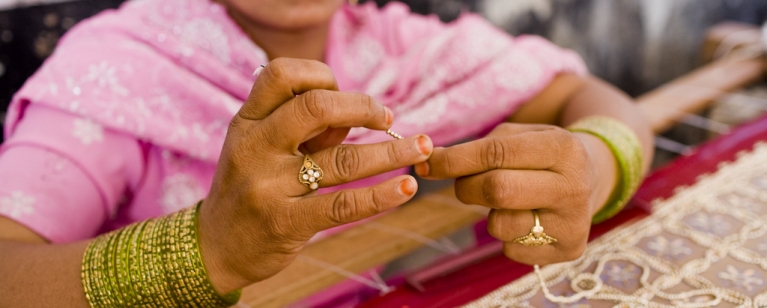
Innovative training helps change behaviour
The ETI-supported Bareilly Homeworker Group has organised the training of over 4,300 homeworkers on health and safety and quality issues.
One of the Bareilly Homeworker Group's first projects was to develop and roll out an innovative training video using actors playing out different scenarios, all designed to educate homeworkers about basic health and safety and quality issues.
Signs of changed behaviour are already evident. For example, many homeworkers have lowered the ceiling lights in their rooms so they can see better, and therefore don't strain their eyes so much. This is a serious issue - if a homeworker loses his/her eyesight from poor lighting, it can mean the entire family loses its only source of income.
Homeworkers are also recognizing that making simple changes - like keeping their sewing looms inside their houses rather than out in the yard, which makes sure that their cloth doesn't fade - helps maintain quality and so reduces the likelihood of work being rejected.
Hidyad, who has been working at his loom alongside his wife for over 15 years, says of the training "after attending the session I lowered my ceiling light to bring it closer to the loom. I can now see what I'm doing better, which will be good for my eyesight in the long run".
He says "the Bareilly Homeworkers Group is the only organisation that has ever taken an interest in my working conditions".
Hidyad has also joined a new self-help group called Hands, formed by a group of homeworkers in his village. He says of the experience, "after attending getting involved with Hands, my understanding and confidence has grown. I feel like I'm a better person. I have found out how to communicate about my problems, and how I can get help solving them."
